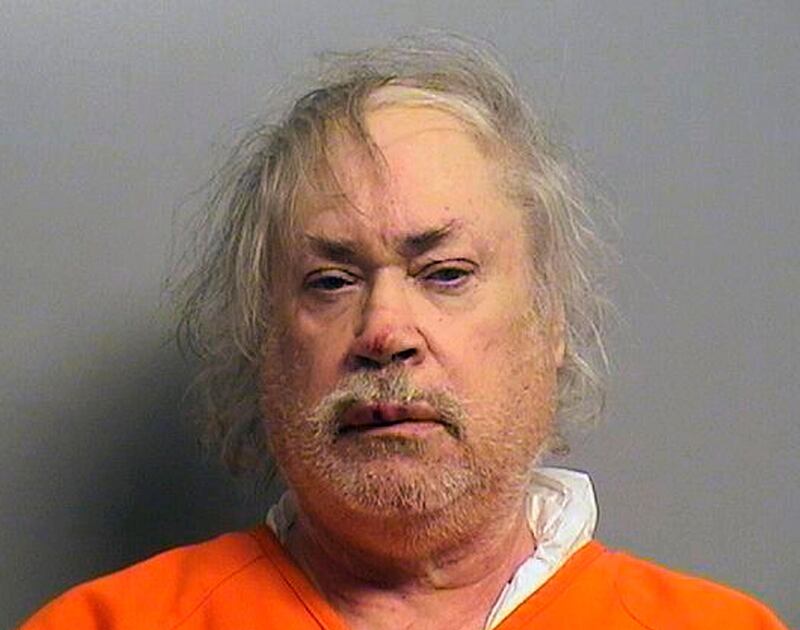The sister of a Lebanese-American man murdered by a racist neighbour says the killer never should have been free after running down their mother in his car and waging a years’ long hate campaign.
A court in Tulsa, Oklahoma on Tuesday sentenced Stanley Majors, 63, to life in prison.
Victoria Jabara Williams told The National he should have stayed in custody after being arrested for a hit and run case in 2015.
"We never should have been in this place," she said. "There were so many red flags raised with this defendant."
Instead, while out on bail in August 2016, he murdered Khalid Jabara, 37.
Mr Jabara was killed on his front porch minutes after calling police in Tulsa to report that his threatening neighbour had a gun.
It marked the culmination of years of abuse. Testimony in court revealed how Majors had bombarded Mr Jabara and his elderly parents with racist insults, calling them "dirty Arabs", "filthy Lebanese" and referring to them repeatedly as Muslims.
In fact, the Jabaras are Christian and had fled Lebanon's civil war decades ago to avoid religious persecution.
Majors was found guilty by a jury earlier this month.
The Jabara family did not attend Tuesday's hearing when Majors was sentence to life in prison without parole.
"We feel that if he hadn’t gotten out in the first place, we would not be in this situation," Mrs Jabara Williams said. "While we are are thankful he is in jail for life, we still feel that something could have been done, something could have prevented my brother being murdered."
Majors' hate campaign lasted years. It reached the point when Mr Jabara's mother, Haifa Jabara, obtained a protective order in 2013 that required Majors to stay 275 metres away and banned him from possessing firearms until 2018.
However, prosecutors said it made little difference. He struck Mrs Jabara with his car – breaking her shoulder and inflicting other injuries – before driving off. Officers who stopped him later reported that he was intoxicated but he was later freed from prison while awaiting trial on assault and battery charges, despite prosecutors' concerns that he posed a major risk.
Mr Jabara's sister said the family had tried to do everything properly, working within the legal system to protect themselves from a dangerous man.
"It really was a perfect storm of social issues in this case, whether it is gun violence, judicial reform, the hate crime aspect," said Mrs Jabara Williams. "If my brother was in jail and had run over someone's mom, as an Arab man would he have gotten out of jail or as a black man would the judge have let him out? I won't ever know the answer to that."
Now she is working with other family members to reform bail guidance, strengthen victims' rights in the judicial process and she has set up a memorial library filled with books on social justice at her daughter's school.
"He was the beautiful one of the family, not just handsome but with a beautiful heart, sensitive and giving," she said of her brother.
"He was a devoted son to my parents. He was helping my father who is elderly and has major health issues. He stayed with them, which is a common thing in the Middle East but not so much in the US."
The defence argued that Majors was a mentally ill gay man, who mistakenly believed his neighbours were Muslim and would harm him for his sexuality. His lawyers say they are planning an appeal.





